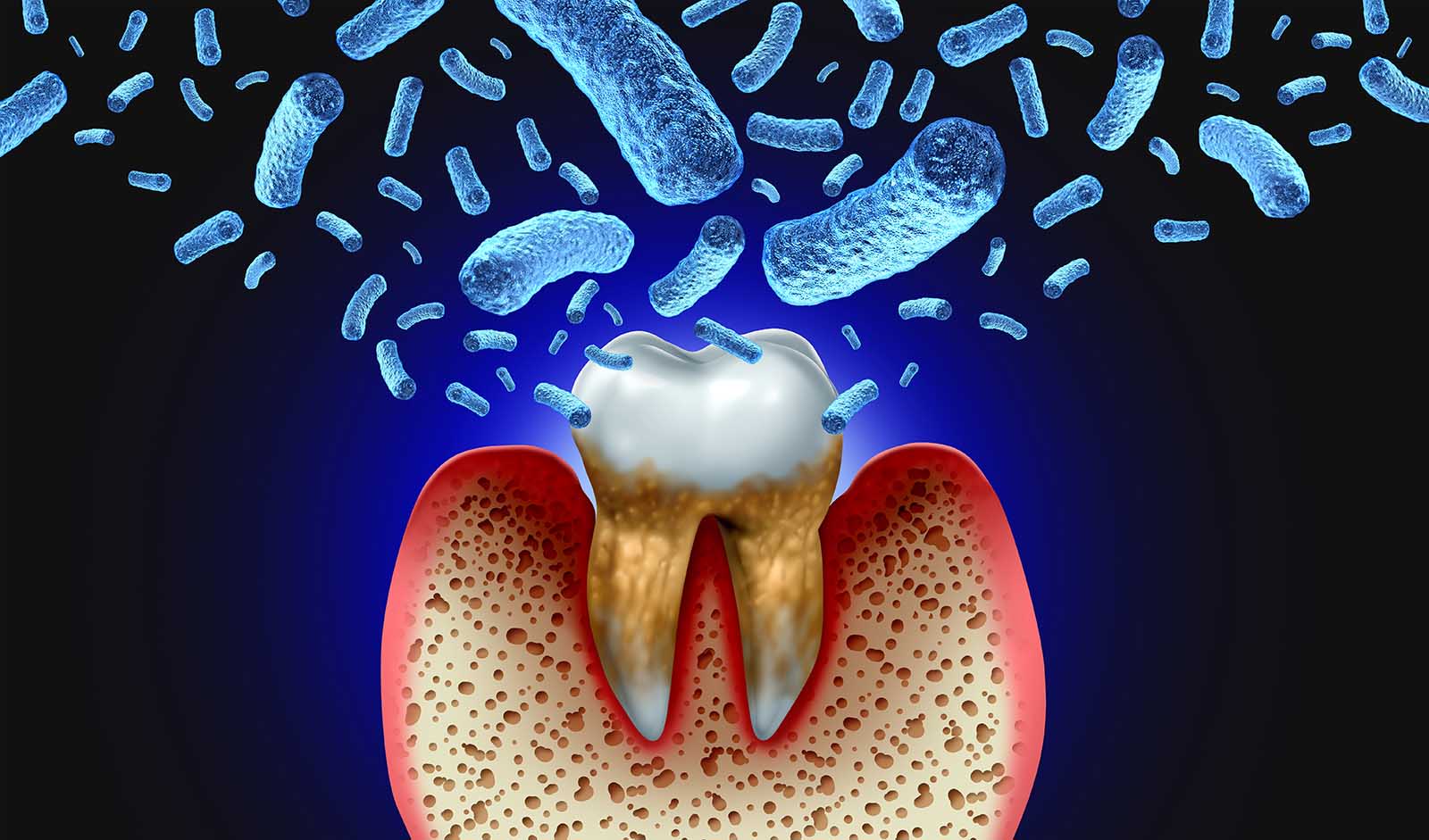Sepsis is a life-threatening condition that occurs when the body’s response to an infection spirals out of control, leading to widespread inflammation and organ failure.
While many people associate sepsis with severe infections like pneumonia or urinary tract infections, few realise it can also stem from something as seemingly benign as tooth decay or gum disease.
The Connection Between Oral Health and Sepsis
The mouth is a gateway to the body, teeming with bacteria, some of which can be harmful under the right conditions.
Tooth decay (dental caries) and gum disease (periodontal disease) are the most common oral health problems, and if left untreated, they can lead to severe infections.
Tooth Decay and Bacterial Invasion
Tooth decay occurs when bacteria in the mouth produce acids that erode the tooth enamel, eventually creating cavities.
If these cavities are not treated, the bacteria can reach the pulp of the tooth, which contains nerves and blood vessels.
Once the infection reaches the pulp, it can spread through the blood vessels into the bloodstream, leading to bacteremia (the presence of bacteria in the blood).
If the immune system fails to contain this infection, it can trigger a systemic inflammatory response, potentially leading to sepsis.
Gum Disease as a Gateway to Sepsis
Gum disease begins as gingivitis, an inflammation of the gums. It can progress to periodontitis, a more severe form where the gums pull away from the teeth, creating pockets that can become infected.
The bacteria responsible for periodontitis can enter the bloodstream through inflamed and bleeding gums.
Once in the bloodstream, these bacteria can travel to other parts of the body, including vital organs, where they can cause severe infections and, in some cases, sepsis.
Pathophysiology: How Oral Infections Lead to Sepsis

Sepsis is the body’s extreme response to an infection. When bacteria from an untreated oral infection enter the bloodstream, the immune system goes into overdrive.
Instead of targeting the infection, the immune response can become dysregulated, causing widespread inflammation, blood clotting, and leaky blood vessels. This can lead to tissue damage, organ failure, and, if not treated promptly, death.
The process typically follows these steps:
Bacteremia: Oral bacteria enter the bloodstream through a decayed tooth or inflamed gums.
Immune Response: The immune system detects the bacteria and releases chemicals to combat the infection.
Systemic Inflammation: The immune response becomes uncontrolled, leading to widespread inflammation.
Organ Dysfunction: Inflammation can cause blood clots and leaky blood vessels, which reduce blood flow to organs and lead to organ failure.
Septic Shock: If untreated, sepsis can progress to septic shock, characterized by a significant drop in blood pressure, leading to severe organ damage and death.
Six Symptoms of Sepsis from Oral Infections
Recognizing the signs of sepsis early is critical, mainly from an oral infection like tooth decay or gum disease. Sepsis can develop rapidly, and understanding the key symptoms can make a life-saving difference.
 Here is a more detailed look at six common symptoms of sepsis that can result from oral infections:
Here is a more detailed look at six common symptoms of sepsis that can result from oral infections:
1) High Fever or Hypothermia (Low Body Temperature)
A high fever is one of the most common early signs of sepsis. It indicates that the body is fighting an infection.
However, in some cases, particularly in older adults or individuals with weakened immune systems, sepsis may cause hypothermia, where the body temperature drops below normal. This drop in temperature can be a sign that the body can no longer mount an adequate immune response, making it a particularly dangerous symptom.
Whether it’s a high fever or a sudden, unexplained drop in temperature, both extremes can indicate the onset of sepsis and require immediate medical attention.
2) Rapid Heart Rate (Tachycardia)
Another critical indicator of sepsis is a rapid heart rate or tachycardia. The heart rate increases as the body attempts to pump more blood and oxygen to vital organs in response to the systemic infection.
In sepsis, this increase is often disproportionate to physical activity or stress, which occurs even when the person is resting.
Tachycardia is a sign that the body is under significant strain and struggling to maintain normal function due to widespread inflammation.
If a person with an oral infection experiences a rapid heart rate without any apparent cause, it should be taken seriously as a potential sign of sepsis.
3) Rapid Breathing (Tachypnea)
Rapid breathing, known as tachypnea, is a common symptom of sepsis.
The body increases its breathing rate to supply more oxygen to tissues that may be deprived due to poor circulation caused by the infection. This symptom is particularly concerning because it can quickly lead to respiratory distress if not addressed.
Tachypnea can be subtle, especially in its early stages, but it is a clear sign that the body’s respiratory system is struggling to keep up with the demands of sepsis.
Rapid, shallow breathing can also exacerbate the condition, decreasing blood oxygen levels and further endangering vital organs.
4) Confusion or Disorientation
Sepsis can affect the brain, leading to confusion, disorientation, or even delirium. This symptom is particularly alarming because it indicates that the infection has started to impact the central nervous system.
The inflammation and reduced blood flow caused by sepsis can deprive the brain of oxygen and nutrients, leading to cognitive dysfunction. This can manifest as difficulty concentrating, memory loss, or sudden changes in behaviour.
For individuals with an oral infection, the onset of confusion or disorientation should be treated as an emergency, as it often signals that the sepsis is progressing rapidly.
5) Extreme Pain or Discomfort
Sepsis often causes significant pain or discomfort, which can be generalized or localized, depending on the source of the infection. This pain is not always at the site of the original infection; due to widespread inflammation and tissue damage, it can be felt throughout the body. Patients often describe the pain as severe and unrelenting, and it may not respond well to standard pain relief measures.
This symptom is particularly problematic because it indicates that the infection overwhelms the body’s systems. For someone with an oral disease, the development of unexplained, severe pain should prompt immediate medical evaluation.
6) Clammy or Sweaty Skin
Clammy or excessively sweaty skin is a common sign of sepsis and is often accompanied by symptoms such as a rapid heart rate and fever. The skin may feel cold and damp despite a high fever.
This symptom occurs because the systemic infection disrupts the body’s efforts to regulate its temperature and maintain blood flow.
In severe cases, the skin may also appear mottled or discoloured, indicating poor circulation and the onset of septic shock. Clammy or sweaty skin is a serious sign that the body is struggling to cope with the infection, and it should be treated as an emergency.
These six symptoms—high fever or hypothermia, rapid heart rate, rapid breathing, confusion or disorientation, extreme pain or discomfort, and clammy or sweaty skin—are vital indicators of sepsis, a potentially life-threatening condition that can arise from untreated oral infections.
If you or someone you know is experiencing any of these symptoms, especially in a known oral infection, it is crucial to seek immediate medical attention.
Early recognition and treatment of sepsis can save lives.
Prevention: Protecting Oral Health to Prevent Sepsis

Preventing sepsis starts with good oral hygiene and regular dental care. Here are some critical steps to reduce the risk of oral infections leading to sepsis:
Maintain Good Oral Hygiene
Brushing twice a day with fluoride toothpaste, flossing daily, and using an antibacterial mouthwash can help reduce the buildup of harmful bacteria in the mouth.
Regular Dental Checkups
Regular visits to the dentist for checkups and cleanings can catch tooth decay and gum disease early before they become severe.
Treat Oral Infections Promptly
If you develop a cavity, gum disease, or other oral infection, seek treatment promptly. Delaying treatment increases the risk of the infection spreading.
Be Aware of Symptoms
If you experience pain, swelling, or other symptoms of an oral infection, don’t ignore them. Early intervention is crucial in preventing complications like sepsis.
Manage Underlying Health Conditions
Certain health conditions, like diabetes, can increase the risk of infections. Effectively managing these conditions can help reduce the risk of oral infections and sepsis.
Oral Health Is Vital To Your Overall Well-being
While sepsis is often associated with more severe infections, tooth decay and gum disease can also be gateways to this life-threatening condition.
Maintaining good oral hygiene, seeking prompt treatment for oral infections, and being aware of the signs of sepsis can help prevent this severe complication.
Oral health is not just about preserving your smile; it’s a critical component of overall health and well-being.
Amazing Smiles is dedicated to providing optimum oral health care for families across the Gold Coast, Jimboomba, Bray Park, Wynnum, and Logan. Our experienced dentists are committed to helping you achieve and maintain a healthy smile through personalized care and preventive treatments.
As preferred providers, we accept all major health funds, allowing patients with eligible cover to maximize their benefits. Additionally, we offer flexible payment plans to ensure quality dental care is accessible to everyone.
Don’t wait until a minor dental issue becomes a major health concern—visit Amazing Smiles today and let us help you keep your smile healthy and bright. Your journey to optimal oral health starts with us.
Disclaimer: This article is for informational purposes only and should not be considered medical advice. Always consult with a qualified healthcare professional for any medical concerns or symptoms you may be experiencing. If you suspect you have an oral infection or any signs of sepsis, seek immediate medical attention.











